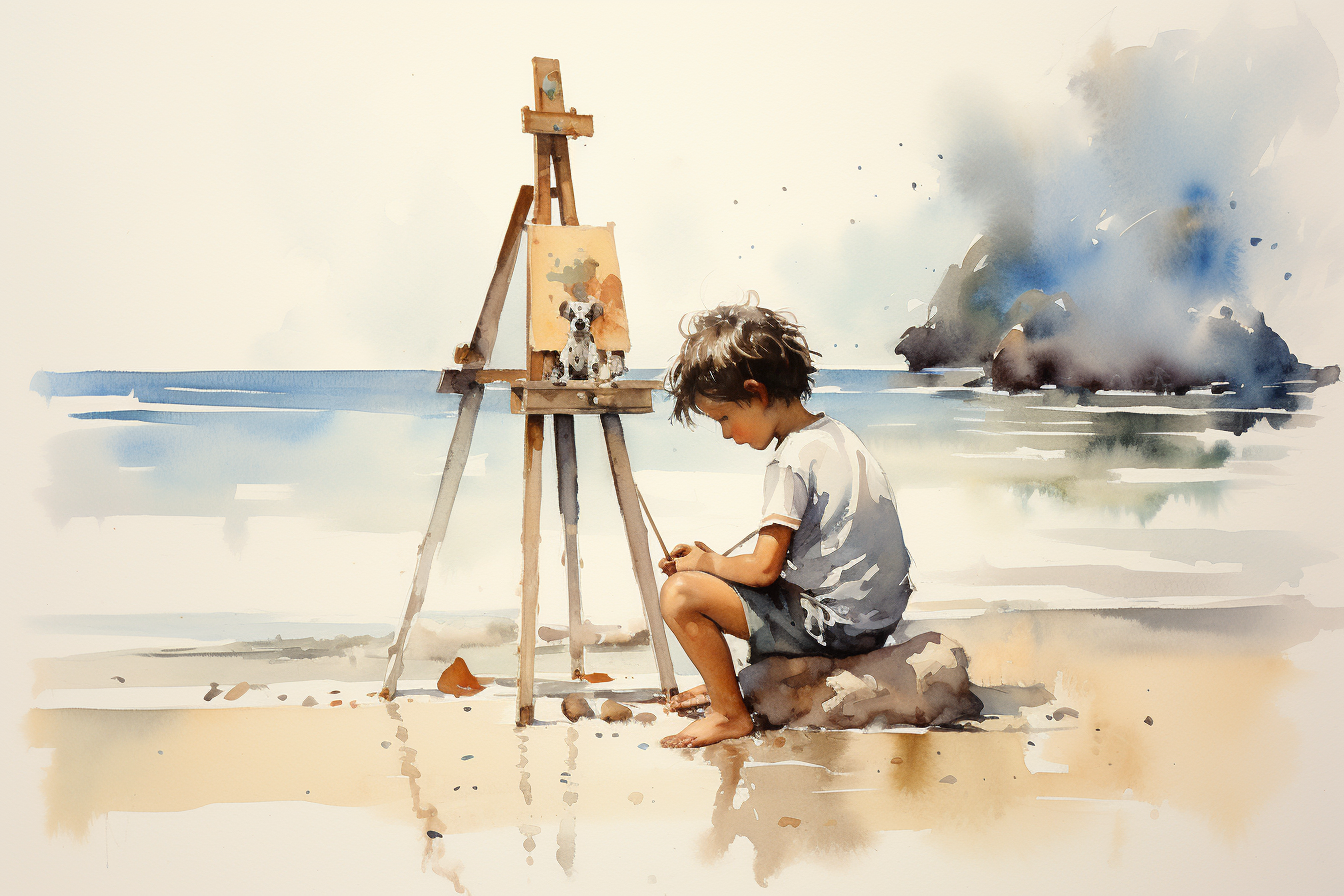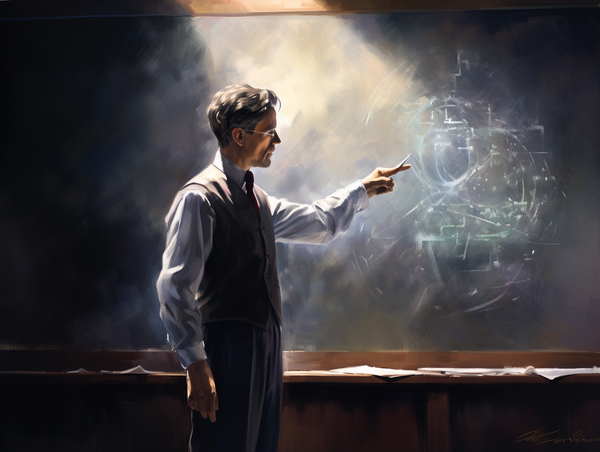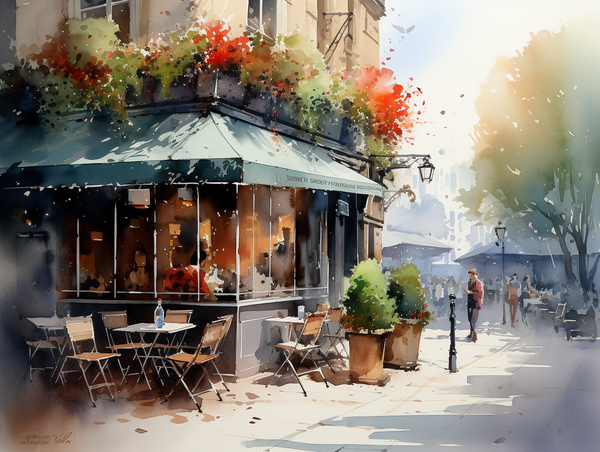The art of becoming: of craft and calling
Our question should not be "What am I passionate about?" but rather "What can I become exceptional at?"

There's a peculiar fairytale we've been telling ourselves for generations. It goes something like this: somewhere in the great wilderness of possibility, there exists a perfect occupation—your "true calling"—waiting patiently to be discovered. Once found, this magical vocation has the power to transform your mundane existence into a perpetual state of fulfilment.
How convenient, how utterly comforting. but also how completely distracting for the most of us.
Accountant on Monday, chef by Friday, aspiring filmmaker the following month. "I just haven't found my passion yet," is what we always tell ourselves. But to be honest, we are almost always looking for unicorns when we should be training horses.
The mirage of passion
This is our first mistake: believing that passion is something to be found like an explorer in a desert, rather than cultivated. The truth—less romantic but infinitely more useful—is that passion is not always discovered. More of than than not it is honed, brick by brick.
Consider a concert pianist who, at age seven, likely despises those endless scales and hours of repetition that numb both fingers and mind. Does she continue because she is passionate? No. She continues because someone—a parent, a teacher—insists on mastery before passion. And somewhere between the ten-thousandth and twenty-thousandth hour, something curious happens: the notes begin to sing, the fingers find freedom in discipline, and the tedious becomes transcendent.
Passion, rarely introduces itself on first dates. It prefers to slip in through the back door while you're busy mastering your craft, surprising you with its presence only after you've earned its trust.
The alchemy of effort
Your question should not be "What am I passionate about?" but rather "What can I become exceptional at?"
Picture yourself as an alchemist. Your laboratory is not filled with bubbling potions seeking to transmute lead into gold. Instead, it contains the raw materials of your chosen craft—whatever that may be. Your gold is mastery, and the philosopher's stone that will get you there, is not magical thinking but methodical practise.
Deliberate practice. This isn't just showing up; it's showing up with intent. It's the difference between the casual jogger and the Olympic sprinter. One runs; the other dissects running into its component parts, strengthening each muscle, timing each stride, measuring progress with unforgiving precision.
When I was younger, I thought writing was about waiting for inspiration to strike, like lightning from a clear sky. I would sit in cafés, notebook open, pen poised, waiting... waiting... waiting. The words never came until I forced the agenda. Writing, like any craft, is about sitting down daily and doing the work, especially when you don't feel like it. Especially when what emerges is terrible.
The terrible articles are the toll we pay for the occasional brilliant ones.
Building your treasury of skill
What you're accumulating through this process is what some call "career capital"—a treasury of skills so rare and valuable that the world cannot help but take notice. And here lies a beautiful paradox: the more you focus on offering value rather than seeking fulfilment, the more fulfilment finds you.
The owner of the antiques store in downtown, didn't begin with a burning passion for timepieces. He began with curiosity and a steady hand. Fifteen years later, collectors from across continents seek his expertise. Hi hands, now lined with tiny scars and calluses, move with the certainty of someone who has failed and adjusted thousands of times. Is he passionate about his work? Fiercely so.
But that passion was forged, not found.
The craftsman's journey
To embark on this journey, you must shed the skin of the passion-seeker and don the apron of the craftsman. The passion-seeker asks, "What will make me happy?" The craftsman asks, "What can I offer that no one else can?"
It's a subtle shift in perspective with profound implications. The passion-seeker is forever looking outward for validation and inward for elusive feelings. The craftsman looks inward for standards of excellence and outward for ways to contribute. One is perpetually dissatisfied; the other finds satisfaction in the steady improvement of their craft.
Meet the chef in a Michelin Star restaurant and you will find that they have been cooking their signature dish every day for thirty years. Ask them if they are bored. They would look at you as if I'd suggested the sun might be bored with shining.
"It is never the same twice. The potatoes are different, the kale has its moods, the sausage varies with the season. I'm having a conversation with these ingredients. And the conversation is never boring."
This is the craftsman's mindset—finding infinite complexity and interest in what appears, to the untrained eye, mundane and repetitive.
The patience of trees
Of course, mastery takes time. In our age of instant gratification, this is perhaps the hardest pill to swallow. We want to be experts by Friday, masters by the following Wednesday. But mastery operates on a different timescale—the timescale of trees rather than tweets.
An oak does not fret about how long it takes to reach its full height. It simply grows, ring by ring, through drought and plenty, through storm and calm. Its concern is not speed but steadiness, not immediate results but resilience over time.
The same patience needs to guide our pursuit of mastery. There will be fallow periods when progress seems nonexistent. There will be growth spurts where skills advance rapidly. Both are part of the natural rhythm of learning. Trust the process. Keep showing up. That's the entire battle won.
From mastery to meaning
And then, one day, something remarkable happens. You look up from your work and realise that somewhere along the way, without fanfare or announcement, passion has crept in. You've become so adept at your craft that it no longer feels like work but like play. You've developed an intimacy with your chosen field that allows for both precision and creativity, both discipline and freedom.
This is not the fleeting excitement of the beginner but the deep, abiding connection of the master. It's not passion as typically understood—all fervour and emotion—but something richer: a sense of purpose, of contribution, of being exactly where you should be, doing exactly what you were meant to do.
And the beautiful irony? This feeling, this sense of calling, didn't lead you to mastery; mastery led you to it.
The end of seeking
So put away your compass and your map. Stop searching the horizon for that perfect career that will instantly ignite your passion. Instead, pick something—almost anything will do to start—and begin the patient work of getting good at it.
Choose based on your values, your circumstances, the needs of your community, or simply what's available to you now. The crucial thing is not what you choose but how you approach it: with the intention to master, to offer value, to build something lasting.
The passion will come, not like a lightning bolt but like the dawn—gradually, inevitably, lighting up your work with meaning and purpose. And when it does, you'll understand that this—not the fairytale of "finding your calling"—is the true story of a fulfilling career.
I write ‘cos words are fun. More about me here. Follow @hackrlife on X or subscribe to my blog




